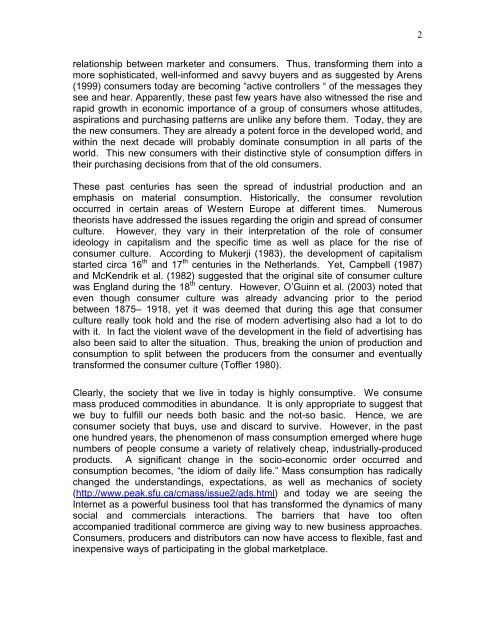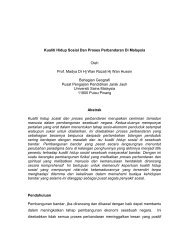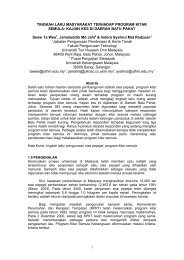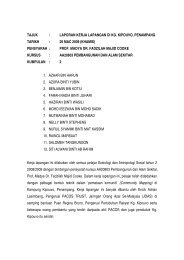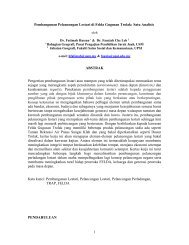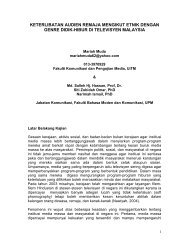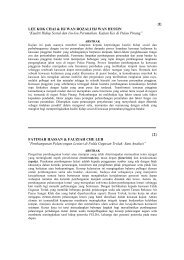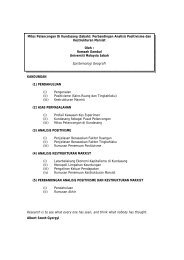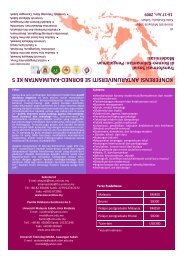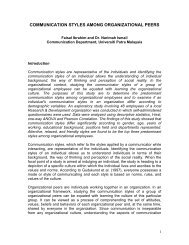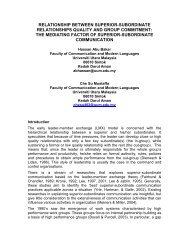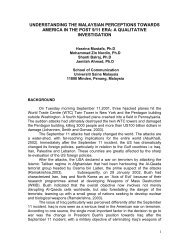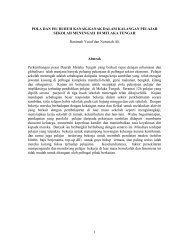FACTORS AFFECTING ONLINE PURCHASING BEHAVIOR
FACTORS AFFECTING ONLINE PURCHASING BEHAVIOR
FACTORS AFFECTING ONLINE PURCHASING BEHAVIOR
Create successful ePaper yourself
Turn your PDF publications into a flip-book with our unique Google optimized e-Paper software.
2relationship between marketer and consumers. Thus, transforming them into amore sophisticated, well-informed and savvy buyers and as suggested by Arens(1999) consumers today are becoming “active controllers “ of the messages theysee and hear. Apparently, these past few years have also witnessed the rise andrapid growth in economic importance of a group of consumers whose attitudes,aspirations and purchasing patterns are unlike any before them. Today, they arethe new consumers. They are already a potent force in the developed world, andwithin the next decade will probably dominate consumption in all parts of theworld. This new consumers with their distinctive style of consumption differs intheir purchasing decisions from that of the old consumers.These past centuries has seen the spread of industrial production and anemphasis on material consumption. Historically, the consumer revolutionoccurred in certain areas of Western Europe at different times. Numeroustheorists have addressed the issues regarding the origin and spread of consumerculture. However, they vary in their interpretation of the role of consumerideology in capitalism and the specific time as well as place for the rise ofconsumer culture. According to Mukerji (1983), the development of capitalismstarted circa 16 th and 17 th centuries in the Netherlands. Yet, Campbell (1987)and McKendrik et al. (1982) suggested that the original site of consumer culturewas England during the 18 th century. However, O’Guinn et al. (2003) noted thateven though consumer culture was already advancing prior to the periodbetween 1875– 1918, yet it was deemed that during this age that consumerculture really took hold and the rise of modern advertising also had a lot to dowith it. In fact the violent wave of the development in the field of advertising hasalso been said to alter the situation. Thus, breaking the union of production andconsumption to split between the producers from the consumer and eventuallytransformed the consumer culture (Toffler 1980).Clearly, the society that we live in today is highly consumptive. We consumemass produced commodities in abundance. It is only appropriate to suggest thatwe buy to fulfill our needs both basic and the not-so basic. Hence, we areconsumer society that buys, use and discard to survive. However, in the pastone hundred years, the phenomenon of mass consumption emerged where hugenumbers of people consume a variety of relatively cheap, industrially-producedproducts. A significant change in the socio-economic order occurred andconsumption becomes, “the idiom of daily life.” Mass consumption has radicallychanged the understandings, expectations, as well as mechanics of society(http://www.peak.sfu.ca/cmass/issue2/ads.html) and today we are seeing theInternet as a powerful business tool that has transformed the dynamics of manysocial and commercials interactions. The barriers that have too oftenaccompanied traditional commerce are giving way to new business approaches.Consumers, producers and distributors can now have access to flexible, fast andinexpensive ways of participating in the global marketplace.


